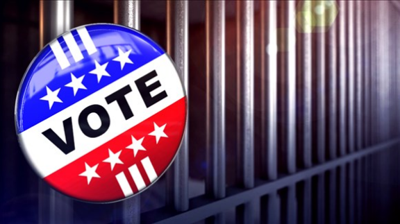The right to vote was restored for most Florida felons as of Tuesday, increasing the pool of eligible voters by as many as 1.4 million people in a battleground state infamous for its narrow margins in key elections.
The Florida Rights Restoration Coalition planned to get people together over breakfast before registering online or going to their local election supervisors’ offices to fill out the forms.
“We are encouraging our members to celebrate,” said organization’s president, Desmond Meade. “Our members are going into the supervisor of elections with their loved ones. And that is very key— with their loved ones— because we really want to highlight that concept of love.”
Nearly 65 percent of Florida voters last November approved Amendment 4, which was crafted so that it would take effect automatically, without further action needed by lawmakers. It applies to all felons who have done their time and completed the terms of their probation and parole, with the exception of people convicted of murder or sex offenses.
The American Civil Liberties Union of Florida says people don’t need to present proof that they completed their sentence; they can simply fill out the existing application, signing under oath that their voting rights have been restored.
Civil rights groups have maintained the measure is self-executing, taking effect automatically on Tuesday, but just to be sure, they warned that they are ready to go to court if there are any delays.
Some offices posted notices at the offices and websites saying they will accept the existing registration application.
Until the amendment passed, Florida’s constitution automatically barred felons from being able to vote after leaving prison. The state’s clemency process allows the governor and three elected Cabinet members to restore voting rights, although the governor can unilaterally veto any request. The process has changed over the years.
(AP)










